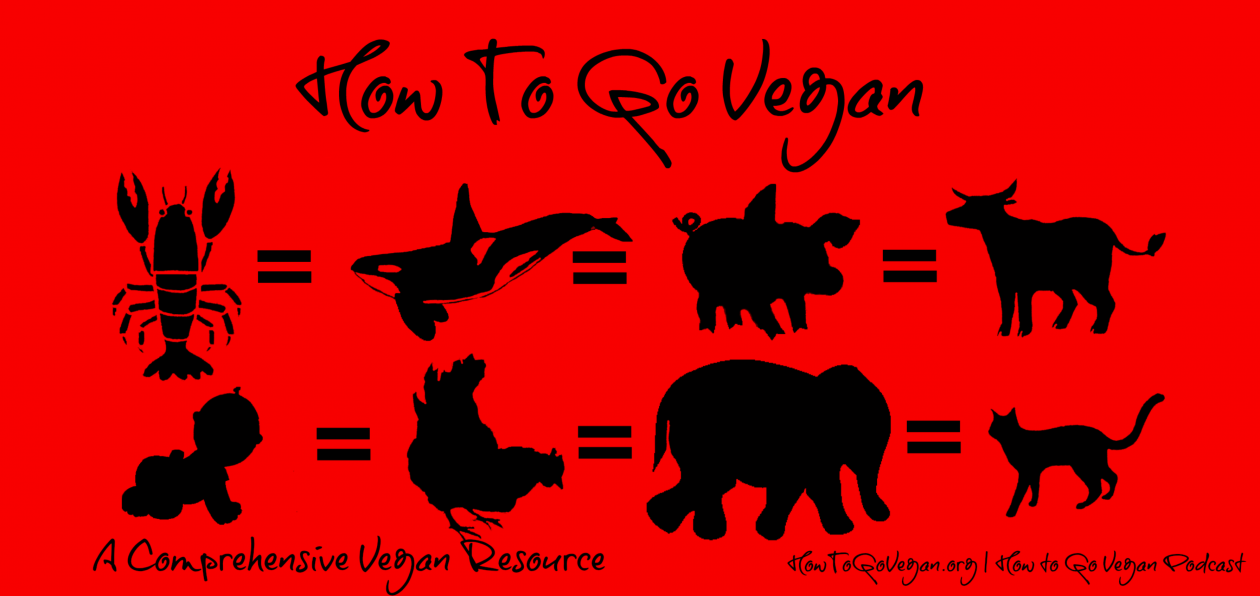Podcast: Play in new window | Download

Excerpt:
Welcome to How To Go Vegan podcast. Hopefully you’ve listened to the episode Introduction to Plant-based Nutrition which includes important information about Vitamin B12. If you haven’t listened to that particular episode I invite you to do so before listening to this one. 🙂 But if you listen to only one episode on this site, I invite you to listen to Becoming Vegan: My Personal Experience
Before I start, I would just like to say that at times I’m going to compare animal sources of various nutrients with plant based sources. If I do this, it’s simply to to demonstrate the clear health issues, backed by science. Although I do this, I want to be clear that for me (and other vegans I know), it wouldn’t matter if animal sourced-nutrients and animal products were better health-wise for us. Even if they were not harmful, I would not consume them because they are products of great violence and also because we can be vegan and we can easily meet our nutrition requires from plants and other non-animal sources. But I will demonstrate the differences between plant versus animal sources with some examples of non-animal nutrition studies, to demonstrate how superior a plant based diet is.
Some of the information I’ll provide in these episodes about nutrition are sourced from a site Nutritionfacts.org which personally I find very beneficial. It freely provides regular science-based public information on the latest in nutrition research. So I invite you to check it out. And a please read my full disclaimer about external sites.
So on to Magnesium. What most of us do not know is how important magnesium is to our overall health.
One of the most significant factors in calcium deficiency is low levels of magnesium. Magnesium (as well as Vitamin D from sunlight or from supplements) is necessary for calcium uptake. If we do not have enough magnesium or Vitamin D, it would not matter how much calcium is in our diet, we can be deficient.
Our major source of magnesium has always been plants. A little known fact is that deficiency in magnesium rather than calcium is mainly responsible for arthritis and osteoporosis. About 50 to 60% of a person’s magnesium is stored in the bone, and therefore, it plays a key role in bone metabolism. Studies have revealed that even a mild ongoing magnesium deficiency can lead to a significant amount of bone loss.
Magnesium is a co-factor for over 100 enzymes involved in the control of blood sugar and glucose metabolism. As such, low magnesium status would be expected to have wide-ranging adverse effects on blood sugar control.
A 2011 study, noted “magnesium is an essential mineral in whole grains, leafy green vegetables, legumes—meaning beans, peas, lentils and soy, and nuts, as well as seeds, that acts as a co-factor in hundreds of enzymatic reactions in the human body.”
A diet low in magnesium has been linked to unwanted increases in the inflammatory process. Chronic and low-grade inflammation has increasingly been tied to increased risk of heart disease, obesity, and diabetes.
Low magnesium has also been linked with depression.
A considerable body of evidence indicates that a higher intake of dietary magnesium may favourably affect a cluster of metabolic and inflammatory disorders including many of our top killers like diabetes and heart disease.
The number one killer of both men and women in the United States is heart disease. What most of us may not know is that according to the American Heart Association, the majority of Americans who die of heart disease, do not have any history of symptoms prior to their fatal heart attack. Their first symptom is literally minutes before they die. People dropping dead in their 30s 40s and 50s. Many autopsy reports of people who suddenly died this way with no prior history of heart problems revealed significantly low concentrations of magnesium in their heart muscle.
Please listen to the full podcast episode to find out more about how important magnesium is to our health. 🙂
Thanks for listening 🙂
![]()

